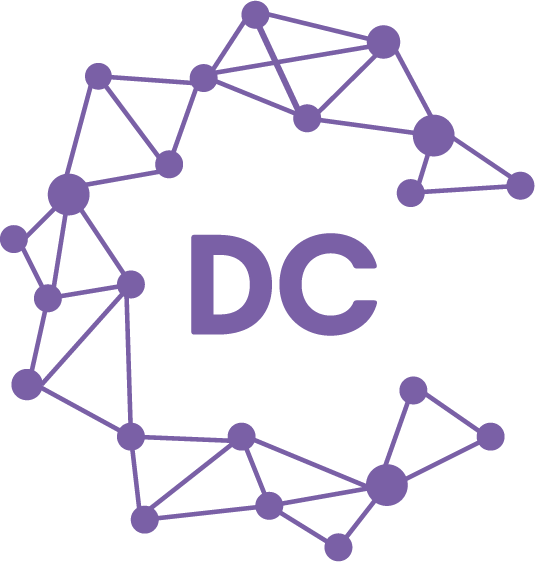Data for Housing Justice

It has never been more important to organise as movements working to build a better world. Amongst a crowd of crucial movements in the UK, the housing justice movement continues to seek safe, secure and affordable housing for a depressingly large proportion of our population.
As with many movements, data has proven a useful tool for organising and demanding change for housing justice. There are examples within and outside of the UK, of researchers and organisers finding creative ways to use data and digital approaches to build campaigning and bargaining power. But the UK’s housing system is extremely complex, and the information environment around it is difficult to infiltrate and make sense of.
Digital Commons Cooperative set out to try and understand how the current state of the housing information environment might be frustrating organising efforts within the UK’s housing justice movement (you can read more about it in our introductory blog to the research here). We’re a community tech organisation, so the ultimate goal was to identify whether there are opportunities for digital or data approaches that might improve the information environment so those organising in the movement could build even greater campaigning and bargaining power.
REBALANCING AN INFORMATION ENVIRONMENT BUILT FOR PEOPLE WITH POWER IN THE HOUSING SYSTEM
Bringing together more than 40 people from across ten places in the UK, we invited organisers, activists and allies to think of “information” expansively, recognising that information at different scales, in different forms and from different sources is valuable to the movement. Together, we identified the struggles and challenges to organising, given the information environment around housing today, and what might be useful to build more transparency or better access to information around, to really unlock organising power.
The research compiled knowledge and experiences to show an information environment that is actively frustrating organising efforts. We heard of the different ways in which people with power within the housing system are protected and anonymised, and where information is unnecessarily obscured, even where information and data is supposed to belong in the public domain. This often leaves organisers to work with incomplete information, or to expend lots of energy and resources to make sense of the complex information that does exist.
However, we also heard that we cannot work on the assumption that a more transparent information environment around housing and land automatically leads to more organising power. As one organiser put it “information alone is not enough”, if organisers don’t have the skills or resources to use it. There are also various risks to organisers, and those living in more precarious housing situations, that need to be carefully considered when trying to create greater access to better information.
Nonetheless, there was a sense that in some cases, digital and data approaches might be a useful way to rebalance the power within information systems. Encouragingly, we also found that people organising across multiple different housing injustices face similar challenges. This means addressing one challenge has the potential to support organisers from across the housing movement.
DIGITAL AND DATA APPROACHES TO UNLOCK ORGANISING POWER
Working with these different people from across the housing justice movement, we’ve identified five clear asks that digital or data approaches might be able to answer. We’ve organised these into five briefs, some of which we hope to address given our existing skills and resources, but some of which we hope to spark conversations or catalyse partnerships with others, who are better placed to do the work. You can click through to find more detail about each brief.
Brief one: Building a better understanding of who owns what
Organisers want to better understand who owns what. Organisers saw potential for such information to help with building campaigning power and support them to take more effective direct action.
Brief two: Understanding patterns of rent extraction
Organisers want to develop a more sophisticated understanding of how much money is being extracted through land and property. Organisers saw potential for such information to help with building campaigning and bargaining power.
Brief three: Making information easier to understand
Organisers want to have tools to translate the complex language used in guidance, policies and laws into plain English and other languages. Organisers said this would help tenants to make more informed decisions and to take direct action.
Brief four: Identifying patterns of evictions
Organisers want to be able to piece together information about evictions, to explore patterns of behaviour by individual corporate and private landlords. They see this as having potential to build bargaining power and evidence of the need for action.
Brief five: Systematically collecting information on safety and hazards
Organisers want the tools to build a more systematic view of poor housing conditions and practices. Organisers saw potential for such information to build more bargaining power amongst tenants and more public consciousness around the challenge, and to help tenants make informed decisions or take coordinated actions.
SOME NON-DIGITAL AND DATA OPPORTUNITIES
Not everything demands a data or digital approach. An emerging, cross-brief need is for organisers to connect and come together, to share wins, frustrations, skills and tactics. Many digital tools and platforms have been tried in the past, with little success. Here we see opportunity for a non-digital approach, such as a housing justice conference, similar to the Oxford Real Farming Conference that brings together grassroots food and farming movements.
There was also an ask from organisers to have resources to help them manage data more safely and effectively. Complex but necessary laws such as GDPR create challenges to sharing data internally and between groups or organisations. When working with external datasets, it can also be challenging to navigate terms of services without legal advice. We see an opportunity for us and others to resource organisers with guidance and templates for privacy and sharing, data governance practices, and guides for creating data commons.
WHAT’S NEXT
You can read through the research findings in full in this downloadable publication here, or directly on our website here. You can also sign up to attend our report launch event, where we will share the findings of the report and host discussion spaces on the briefs. So if you’re interested in listening rather than reading the report, or if you want to get together with us and others interested in some or all of the briefs, sign up here!
Where there is interest in some or all of the briefs, we’d also love to host some online workspaces with those that want to be more involved, to explore what is possible. If you already know that is something you’re interested in, let us know via a google form here or email us at hello@digitalcommons.coop letting us know which of the briefs you’re interested in and how you might like to get involved.
